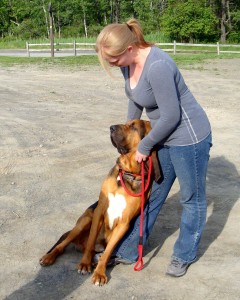Throughout my time as an educator, and all of my years of professional development courses and college classes, I have been called upon many times to take a “Personality Test.” You are probably familiar with some variation of it. The instructor hands you a piece of paper, and you circle the words or phrases that best describe yourself. Then you look on a score sheet, and you miraculously find out all about your personality. Have you taken one of them before? Lord knows I have taken different tests about five to ten times. And here is what I’ve found.
No matter what the unique theme of the test is (colors, animal species, compass directions, etc.), there are four personality types that people generally fit into. The Doer, the Feeler, the Thinker, and the Dreamer are the most straightforward names for the four types, and describe the types perfectly. The cool thing about these personality tests is that, no matter how many types I’ve taken, I always fall into the same category (no matter what the name is!). They’re actually very on point with their descriptions of strengths and challenges.
Want to learn more about dog training and motivation? Join our mailing list and get access to my FREE mini-course!
The other cool thing, as a dog owner and dog trainer, about these categories is that your dogs fall into them too! The reason that this is so neat is that it can help you to problem solve and understand how to best motivate your dog, and how to formulate your training plans to best meet your pup’s needs and encourage their learning! Here is a rundown of the four types, and what that looks like in a dog.
1. The Doer.
Just as the name implies, the Doer is one who likes to get things done! This is a person who enjoys seeing a project through to completion, and is truly motivated by seeing a job well done! They are people who love recognition for their hard work, and like to get things like awards or bonuses to show their dedication.
What does this look like in a dog? These are, hands down, the easiest dogs to train. They love to work for you, they love to learn new things, and they love to earn treats, toys, and praise. Herding and Working breeds often fall into this category, because they are dogs who like to have order and predictability in their lives, and like to get things accomplished!

Almost all of my Australian Shepherds are Doer Dogs. They love to work for food, and simply for the joy of working with me. The two that I have at the time I’m writing this don’t actually care WHO is doing the work with them. They don’t want to exclusively work with me. They will shamelessly work for whoever gives them food and accolades.
The Feeler.
Feeler people are those folks who are very empathetic to those around them. They almost intuitively know what others are feeling, and they make it their goal in life to help people to be happy and feel good. Feelers are often found in professions of helping, such as teaching, nursing, and customer service, because it is highly motivating for them to help others to be happy!
The same can be true of dogs! These dogs are also incredibly easy to train, because while they aren’t focused on earning tangible things for their work, the most important thing to them is that their owner or handler is happy with them. These dogs love to be right, and to try their best to make you happy. At the same time, they will work extra hard to avoid making you unhappy. They are dedicated to making sure you are pleased with them!

I’ve met many dogs who fall into this category, and often they don’t need or even don’t WANT treats or toys when they’re working. These dogs also tend to make excellent therapy dogs. They thrive on the joy that they bring to folks when they go on their therapy visits!
The Thinker.
A person who is a Thinker is a person who likes to know how things work. They like to understand all of the pieces of a task or a system before they dive in and start to work. These are folks who excel in professions such as engineering, mathematics, and hard sciences. They enjoy working through problems, following formulas and steps, and reaching conclusions.
In the grand scheme of dog training, these dogs can often present a bit of a challenge, even to the most experienced dog trainer. They are often not as motivated by food or toys, and sometimes won’t take them at all if they don’t understand the task ahead of them. However, if you understand that your dog simply needs to understand all of the pieces to a particular problem or challenge before they jump in head first, they can quickly come around and be delightful working partners. Using the right techniques for this type of training is crucial, because many mainstream techniques just simply don’t address the dog’s cognitive understanding of a task in the way that these dogs need.
The Dreamer.
The Dreamer is a person who is full of big ideas. They love to think of new, bigger, and greater things, and are motivated by the chance to grow and improve. This can sometimes get in their way, because they’ll have a new idea pop up before they’ve completed (or sometimes done any actual work at all on) their previous idea. However, Dreamers are those who come up with the grand schemes that can end up being completely magical (just look at Walt Disney and his enterprises!).

In dogs, Dreamers look a little different. Like the Thinker, they can be both incredibly difficult, and relatively easy to train, depending on how well you understand what motivates them. While you can motivate a Doer dog with treats or toys, a Dreamer dog will become quickly bored with a repetitive task and will wander off to make his own fun. After the first two or three times of trying a new behavior, you’d better have the next step to your training lined up and be ready to move on. Otherwise, your dog will leave you in the dust in favor of his own ideas.
Understanding Your Dog.
When you consider your dog, think about what makes him happy. Would he sell his soul for a milk bone? Does he try his best to please you, even when you have no treats or toys? Does he seem hesitant to try new things? Is he always surprising you with new and different ways to get into trouble? Think about which of these categories your pup might fit into. You’ll be amazed to find that your ability to tackle challenges with motivation and training will increase at an incredible rate, and that you’ll be able to reach your dog in ways that you weren’t before!
Want to learn more about training? Join our mailing list to get tips to your inbox!